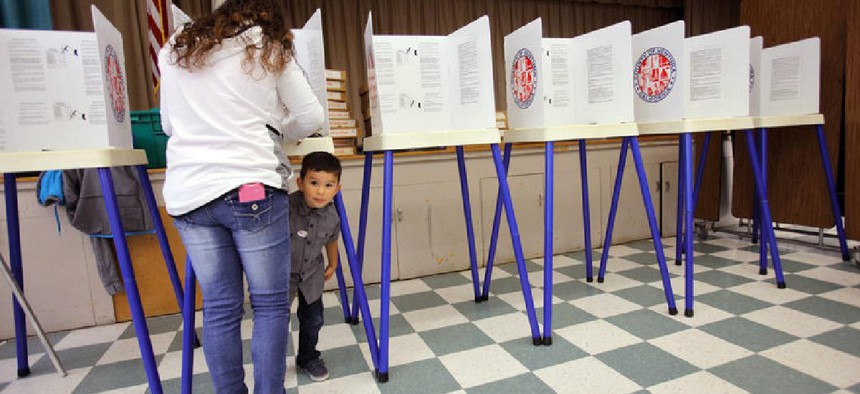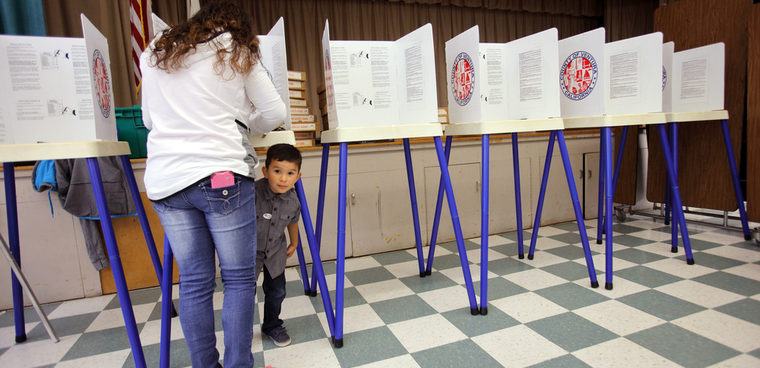Lag continues for federal voting system standards

The election community wants the EAC to speed up its process for approving new voting system standards. Public comments on draft requirements show there are still numerous unresolved conflicts to hash out.

State and local election officials have already expressed frustration over the slow-moving process to approve new voting system standards being overseen by the Election Assistance Commission. Based on the public feedback for draft requirements, it's clear there remain a number of outstanding issues that must be worked out before moving forward.
The commission received 1,660 individual responses after putting the draft requirements out for public comment, with responses from voting machine manufacturers, security experts, election administrators, accessibility advocates and the general public. The varied, sometimes contradictory criticisms reflect the complexity and multi-stakeholder nature surrounding what should be emphasized in voting machine technology.
"Overall, the majority of the comments focused on ambiguity, vagueness of requirements, inconsistent terminology, additions and changes to the glossary and requirements that are not measurable in their current form," said Mona Harrington, Executive Director of the EAC during an Aug. 12 meeting of the Technical Guidelines Development Committee.
The comments reveal continuing tensions between security and accessibility in the final requirements. While most election security experts have pushed for the use of paper ballots, a ban on connecting voting machines to the internet and limiting usage of Ballot Marking Devices, some accessibility groups argued these shifts would make it meaningfully harder for some Americans to vote.
Melissa Sublett, Executive Director of the Oklahoma Disability Law Center, raised a number of objections to the draft "requirements, saying the "focus on increased election security will result in decreased accessibility when implemented."
EAC has also been criticized by lawmakers and election security experts for not moving aggressively enough to bolster the security of voting systems, hold vendors accountable and incorporate non-voting technologies like e-pollbooks and voter registration systems into the process. The commission is working with the Center for Internet Security on a pilot project to develop similar, voluntary security standards for these products, but even that was criticized during the meeting for potentially taking focus away from completing the voting system standards.
"Obviously since 2016, we're in a changed world in this space of election technology," said Chair Ben Hovland.
Despite working on them for years, EAC has yet to formally vote to adopt either the high-level principles and the more detailed technical guidance that vendors will rely on to build their systems. Commissioners say they are legally bound by the Help America Vote Act to put both documents through a multi-layered approval process, but groups like the National Association of State Election Directors (NASED) dispute that legal interpretation and commissioners have yet to formally vote to codify that view.
The organization's leaders said it is possible to speed up the process by separating the principles and technical requirements portions to allow the technical requirements to be changed by staff without a vote from commissioners. Hovland has said he is open to setting up an annual process to implement changes to the requirements absent a vote, but the organization has not voted on the matter.
At the meeting, Hovland said the subject has not been "broadly discussed in any way" and reiterated his view that there are public rules for approving the documents.
NASED leaders called for the EAC, which was paralyzed for almost a year without a quorum, to "put an end to this part of the conversation once and for all" lest a similar situation hampers the approval process once again.
"We remain concerned that the [commission] may lack a quorum again and what that could mean for the future of the VVSG if both the Principles and Guidelines and the Requirements must go through the HAVA process," NASED leaders wrote. "We strongly encourage the EAC to adopt a policy to ensure that the [process] does not stagnate in the event of no quorum."
NEXT STORY: Connolly balks at FEVS delays


